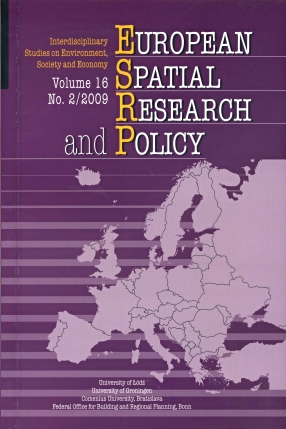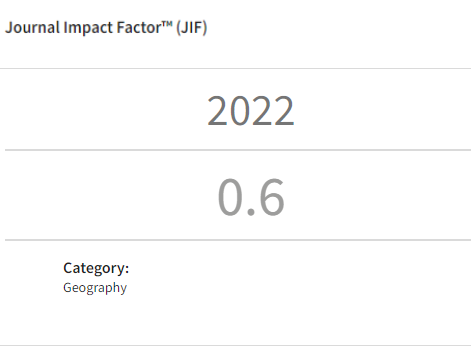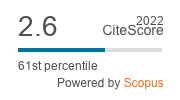Constructing and Crossing Boundaries in a New (?) Europe
DOI:
https://doi.org/10.2478/v10105-009-0012-6Keywords:
post-socialism, transition, geopolitical discourse, Balkan, HungaryAbstract
During the last two decades, discourses over the transition process shifted toward a theoretical diversity and a deeper understanding of ‘how modernity was reworked in postsocialist context’. It was widely argued that changing social relations were shaped not only by norms and institutions of Neoliberal capitalism, but also by established networks, institutional and regulatory structures and actors that/who gave diverse responses to the profound and thorough transformation of the society. This paper aims at understanding how geopolitical discourses over the Balkan and its place in the ‘new Europe’ shaped social relations and produced daily practices nested into those webs, through the perception and interpretations of post-socialist transformation by Hungarian migrants who left the war-hit Yugoslavia.
Downloads
References
ANDERSON, B. (1991), Imagined Communities: Reflections on the Origin and Spread of Nationalism, London: Verso.
Google Scholar
BRUBAKER, R. (1998), Nationalism Reframed: Nationhood and the National Question in a New Europe, Cambridge: Cambridge University Press.
Google Scholar
CLARK, G. L. (2001), ‘Vocabulary of the new Europe: Code Word for the Millennium’, Environment and Planning D: Society and Space, 19, pp. 697-717.
Google Scholar
CUNNINGHAM, H. (2004), ‘Nations Rebound? Crossing Borders in a Gated Globe’, Identities: Global Studies in Culture and Power, 11, pp. 329-350.
Google Scholar
GULYÁS, L. (2007), ‘A második jugoszláv állam felbomlása’ (The collapse and dissolution of the second ‘Yugoslav’ state), [in:] A Kárpát-medence régiói: Vajdaság, Pécs-Budapest: MTA RKK-Dialóg Campus Kiadó, pp. 141-148.
Google Scholar
HOUTUM, H. van and PIJPERS, R. (2007), ‘The European Union as a Gated Community: The Two-faced Border and Immigration Regime of the EU’, Antipode, 39 (2), pp. 291-309.
Google Scholar
HÖRSCHELMANN, K. (2004), ‘The Social Consequences o Transformation’, [in:] BRADSHAW, M. and STENNIG, A. (eds), East Central Europe and the Former Soviet Union, Harlow: Pearson, Prentice Hall, pp. 219-246.
Google Scholar
JACKSON, L. (2004), ‘Nationality, Citizenship, and Identity’, [in:] BRADSHAW, M. and STENNIG, A. (eds), East Central Europe and the Former Soviet Union, Harlow: Pearson, Prentice Hall, pp. 187-218.
Google Scholar
KOSTOVICOVA, D. (2004), ‘Post-Socialist Identity, Territoriality and European Integration: Serbia's Return to Europe after Milosevic’, Geojournal, 61, pp. 23-30.
Google Scholar
MITCHELL, K. (2000), ‘Networks of Ethnicity’, [in:] BARNS, T. and SHEPPARD, E. (eds), The Blackwell Companion to Economic Geography, London: Blackwell, pp. 392-407.
Google Scholar
MOISIO, S. (2002), ‘EU Eligibility, Central Europe, and the Invention of Applicant State Narrative’, Geopolitics, 7 (3), pp. 89-116.
Google Scholar
NAGY, E., NAGY, G. and KISS, J. (2003), ‘Kihasználatlan tartalékok és részsikerek: örökölt és újkeletű konfliktusok, ellentmondások Szeged fejlődésében’, [in:] TIMÁR, J. (ed.), Várossiker - alföldi nézőpontból, Budapest: MTA Társadalomkutató Központ, pp. 120-162.
Google Scholar
Ó TUATHAIL, G. (1999), ‘A Strategic Sign: The Geopolitical Significance of Bosnia’, Environment and Planning D: Society and Space, 17, pp. 515-533.
Google Scholar
Ó TUATHAIL, G. and AGNEW, J. (1992), ‘Geopolitics and Discourse: Practical Geopolitical Reasoning and American Foreign Policy’, Political Geography, 11, pp. 190-204.
Google Scholar
PAASI, A. (2001), ‘Europe as a Social Process and Discourse: Considerations of Place, Boundaries and Identity’, European Urban and Regional Studies, 8 (1), pp. 7-28.
Google Scholar
PICKLES, J. and SMITH, A. (eds), (1999), Theorising Transition, London: Routledge.
Google Scholar
ROBINSON, G. M., ENGELSTOFT, S. and POBRIC, A. (2001), ‘Remaking Sarajevo: Bosnian Nationalism after the Dayton Accord’, Political Geography, 20 (8), pp. 957-980.
Google Scholar
SAJTI, E. (1995), ‘Jugoszlávia széthullása’ (Dissolution of Yugoslavia), Tiszatáj, 49 (5), pp. 59-63.
Google Scholar
SIDAWAY, J. D. (2001), ‘Rebuilding Bridges: A Critical Geopolitics of Iberian Transfrontier Cooperation in a European Context’, Environment and Planning D: Society and Space, 19, pp. 743-778.
Google Scholar
SIMONSEN, K. (2004), ‘Europe: National Identities and Multiple Others’, European urban and Regional Studies, 11 (4), pp. 357-362.
Google Scholar
SMITH, A. (2004), ‘Regions, Spaces of Economic Practice and the Diverse Economies in the 1 New Europe’, European Urban and Regional Studies, 11 (1), pp. 9-25.
Google Scholar
SMITH, A. D. (1998), ‘Nationalism and Modernism: A Critical Survey of Recent Theories of Nations and Nationalism’, London: Routledge.
Google Scholar
SMITH, A. and PICKLES, J. (1999), ‘Introduction: Theorising Transition and the Political Economy of Transformation’, [in:] PICKLES, J. and SMITH, A. (eds), Theorising Transition, London: Routledge, pp. 11-25.
Google Scholar
STENNING, A. and BRADSHAW, M. (2004), ‘Introduction: Transformation and Development’, [in:] BRADSHAW, M. and STENNIGA, A. (eds), East Central Europe and the Former Soviet Union, Harlow: Pearson, Prentice Hall, pp. 1-32.
Google Scholar
STENNING, A. and HÖRSCHELMANN, K. (2008), ‘History, Geography and Difference in the Pos-socialist World: Or, Do We Still Need Post-Socialism?’, Antipode, 40 (2), pp. 312-335.
Google Scholar
SZLÁVITY, Á. (2007), ‘Népesség és munkaerőpiac’ (Population and labour processes in Serbia and Vojvodina), [in:] A Kárpát-medence régiói: Vajdaság, Pécs-Budapest: MAT RKK-Dialóg Campus Kiadó, pp. 188-224.
Google Scholar
WALTERS, W. (2002), ‘Mapping Schengenland: Denaturalizing the Border’, Environment and Planning D: Society and Space, 20, pp. 561-580.
Google Scholar
YOUNG, C. and LIGHT, D. (2001), ‘Place, National Identity and Post-socialist Transformations? An Introduction’, Political Geography, 20, (8), pp. 941-955.
Google Scholar
ZIEGLER, D. J., (2002), ‘Post-communist Eastern Europe and the Cartography of Independence’, Political Geography, 21, pp. 671-686.
Google Scholar
Downloads
Published
How to Cite
Issue
Section
License

This work is licensed under a Creative Commons Attribution-NonCommercial-NoDerivatives 4.0 International License.














